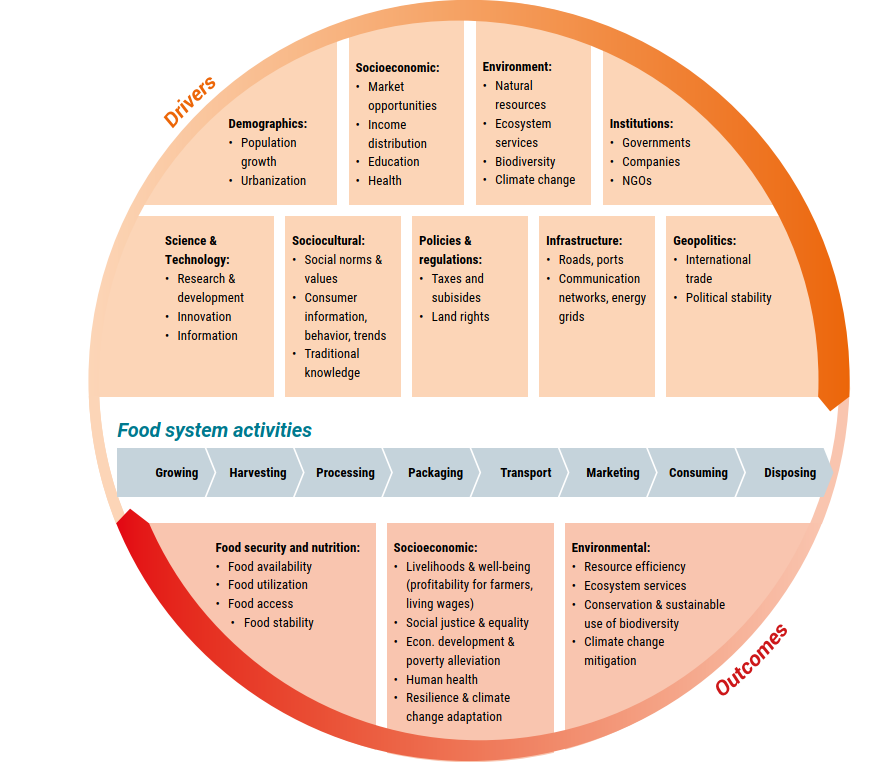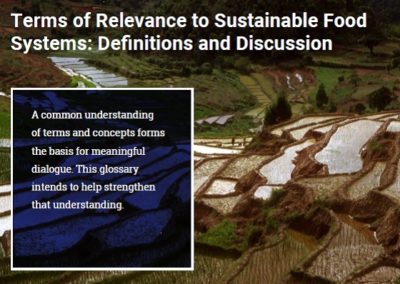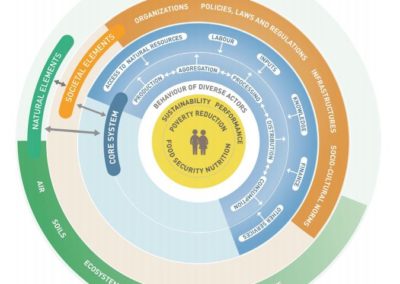© One Planet Network Sustainable Food Systems (SFS) Programme 2020
Background
In recent years, transforming food systems in a way that is healthy both for the planet and the people has received greater attention. A variety of stakeholders from around the world, including government agencies, business and academia, as well as international and civil society organizations, with different backgrounds and missions, are participating in this evolving debate. The COVID-19 crisis has exacerbated these challenges and highlighted some of the structural deficiencies at their core, which further highlights the urgent need for transformation towards sustainable and resilient food systems.
Tackling the challenges that our food systems are facing requires a systems approach that takes into account the interrelationships among the different elements of the food system as a whole, rather than focusing on a single element or a limited subset of elements of the food system in a piecemeal fashion. They also call for multi-stakeholder collaboration, including public-private partnerships and other innovative forms of cooperation. The sustainable food systems approach looks at food systems from a truly holistic perspective.
Initiated in 2015, the Sustainable Food Systems Program (SFSP) program is co-led currently by Costa Rica, Switzerland, and WWF. The Program is part of the One Planet Network, which was established to implement the UN 10-Year Framework of Programmes on Sustainable Consumption and Production (10YFP). The 10YFP was endorsed at the UN Conference on Sustainable Development in Rio de Janeiro (Rio+20 Conference) in 2012.
SFSP Glossary
The SFSP elaborated a detailed glossary, providing a list of definitions of terms and concepts commonly used in the context of sustainable food systems. It gives a useful overview on commonly accepted definitions, including those developed by relevant intergovernmental organizations and/or other authoritative scientific and/or multi-stakeholder bodies or processes.
SFSP Common Understanding of Sustainable Food Systems including Glossary
Many of the definitions can be understood as working definitions. An aspect that is most helpful here is that in this case, the authors provide a concise account of the current discussion on the term.
In addition, there is a wide selection of useful infographics that depict the complexity of food systems visually.

To move towards sustainable food systems in a holistic way, different stakeholders (e.g. the private sector, producers, consumers and ministries) need to come together, as having discussions and exchanging ideas is key when seeking to bring about transformation. The Food System Summit, to be held in September, provides an opportunity to come together in dialogues. These dialogues reflect a multi-stakeholder trend in the governance of the food sector.




